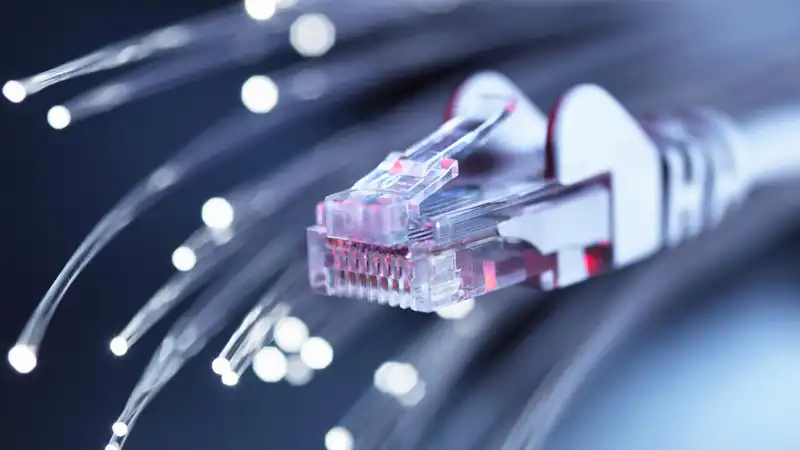Readers of a certain age will remember well the days when 56 kbps Internet connections were considered fast. Then came DSL, and dial-up seemed like a comatose snail in comparison. However, a team of engineers achieved a data transfer rate of 402 Tbps using standard fiber optic cable. This is fast enough to download the entire collection of "Baldur's Gate 3," "Red Dead Redemption 2," and "Fallout 4" in less than a tenth of a second.
The team in question was Japan's National Institute of Information and Communications Technology (via Fudzilla) and did not use strange technology or lab microscopic distances; 50 km of commercial optical fiber and signal amplifiers were used for the test. The estimated peak rate was 402 Tbps (50.25 TB/s), about 25% higher than the previous record established last October.
Fiber optics is used as the backbone of the Internet around the world, transmitting digital information in modulated infrared, optical, and ultraviolet signals. what NICT did was to employ as much transmission bandwidth as possible, and using state-of-the-art amplifiers and gain equalizers to achieve a signal bandwidth of 37.6 THz. This is more than 100,000 times the bandwidth available to WiFi 7, for example.
Of course, no one will get a 400Tbps home broadband connection anytime soon. The cost of the current setup is too prohibitive for the average user, but the sheer volume of data required to tap through the web makes this development certainly interesting for the industry as a whole.
But let's assume that such a home broadband package were available; how many 150 GB games could be downloaded within a second?" Sadly, not so. Sadly not, because there are multiple bottlenecks in even the best gaming PCs, starting with the Ethernet port.
You may be lucky and have a motherboard rated for 10GbE or 10Gbps, but that is about 400,000 times slower than what NICT achieves.
Even if you find a way around this problem (and the PCH bus bottleneck), you will still be limited by the speed of your gaming PC's RAM or SSD. These SSDs are not fast enough to write data. A top-end rig could easily handle a 1 Gbps fiber-to-the-home connection, but it is not likely to be able to handle 412,000 Gbps!
At least not yet; a 56k dial-up era gaming PC will be a major bottleneck for modern DSL connections. By that time, games will be well over 150 GB in capacity.
It's funny how advances in PC technology sometimes don't feel like progress.


Comments